First listed company ASN Biodiversity Fund invests in
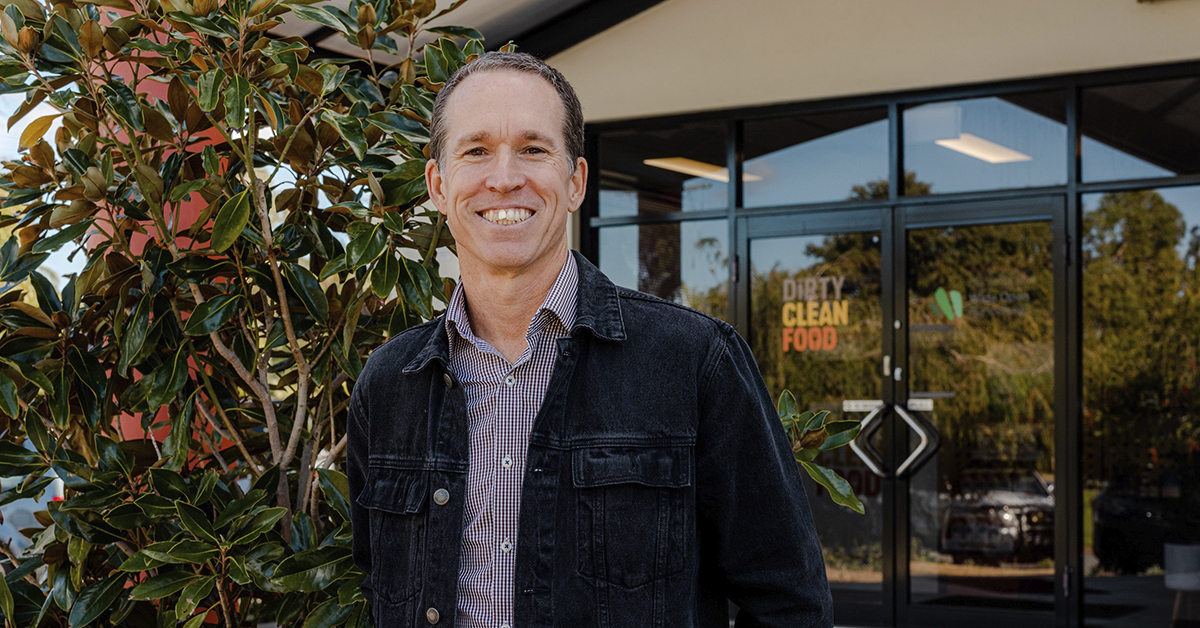
In Australian supermarkets and coffee bars you can now find Dirty Clean Food’s oat milk with a special story. This plant-based, CO2-neutral, regenerative alternative to milk has been put on the market by a listed start-up on a special mission. Wide Open Agriculture (WOA) proves that regenerative agriculture contributes to soil health, biodiversity and nature restoration.
Lupine as the holy grail of plant-based meat substitutes
To achieve this, WOA developed Dirty Clean Food oat milk, made from oats grown using regenerative farming practices. Regenerative farming practices build soil health (rich in carbon), expand biodiversity and nurture the natural water cycle. Even more remarkable is that in addition to oats, the Australians are investing in a crop currently only grown as animal feed: lupine. The variety Lupinus angustifolius thrives in Western Australia, is bursting with protein and fibre and is basically a competitor of the ubiquitous soy. However, lupine was previously only considered suitable as animal feed. Ben Cole, co-founder of Wide Open Agriculture: ‘It has taken over 20 years of dedicated research to make it suitable for human consumption. We are now ready to take this research to food and ingredient companies across the world”.
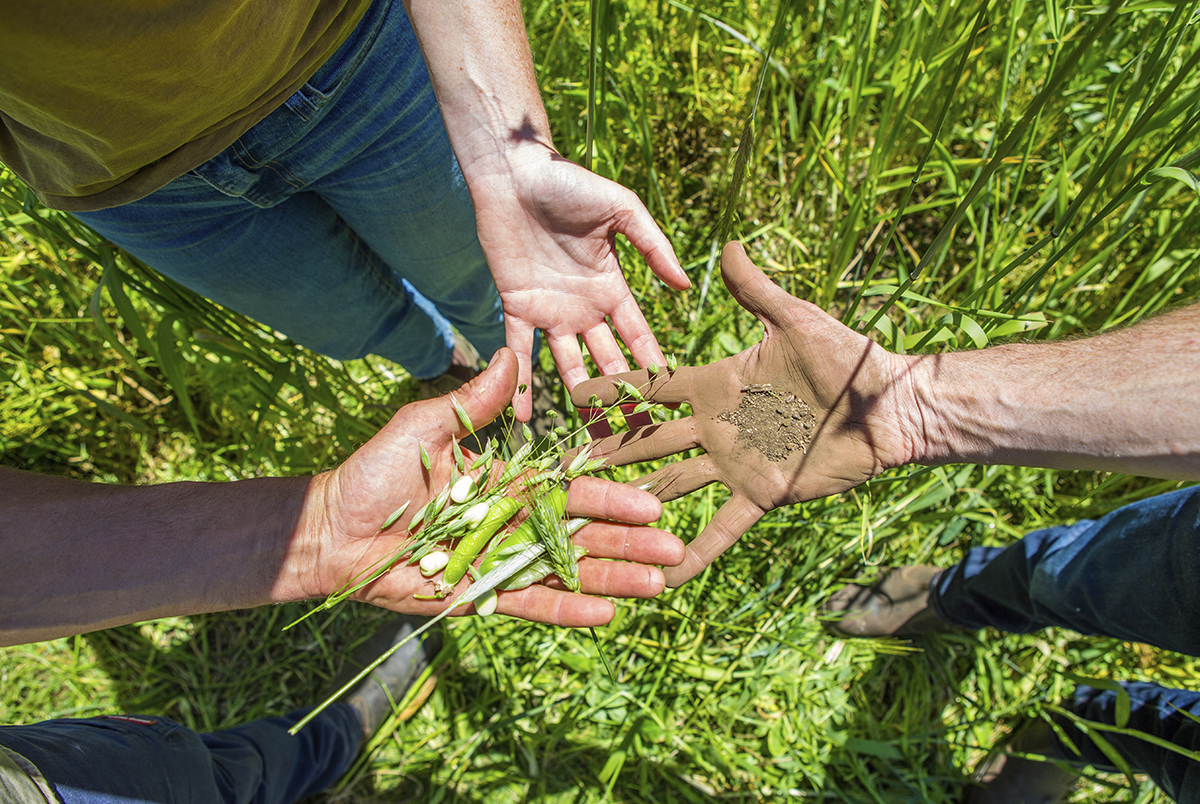
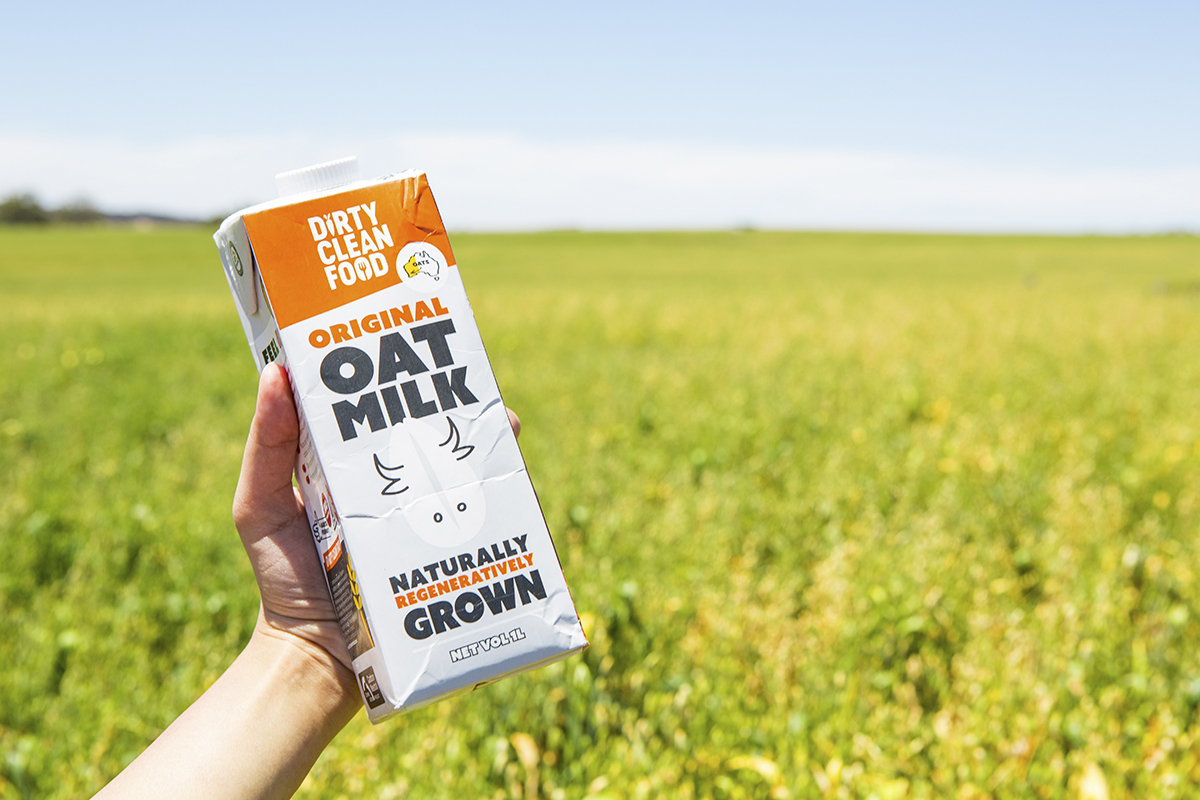
Together with a local university (Curtin University), Wide Open Agriculture has developed a process for extracting the proteins from lupine, and Cole’s start-up has secured the global rights to it under the name Buntine Protein. ‘We will soon be able to add lupine protein in powder form to, for example, veggie burgers, pasta or vegan cheese substitutes. Also, if we enrich our oat milk with it, it creates the creamy mouthfeel that people, including the baristas who have tested it for us, say they miss compared to cow’s milk.’ Wide Open Agriculture is now building its own lupine pilot factory that will be up and running this year, to contribute to the protein revolution. ‘Lupine is also gluten-free: that makes it the Holy Grail of plant-based meat substitutes.’
Regenerative agriculture
‘If we enrich our oat milk with it, it creates the creamy mouthfeel that people, including the baristas who have tested it for us, say they miss compared to cow’s milk.’
The 4 'returns' of Commonland
WOA founders Anthony Maslin and Ben Cole believes in regenerative agriculture, which is why WOA works together with Commonland, a Dutch organisation he got in touch with almost eight years ago. Commonland works with investors and international companies worldwide to make large degraded areas green, liveable and healthy again. Commonland is an initiative of the Dutch ecologist Willem Ferwerda, who developed the 4 Returns Framework: agriculture should not only yield financial returns, but also natural and social returns, and provide inspiration to everyone who comes into contact with it. Cole and Maslin realised that Western Australia could also benefit from the approach. ‘The returns from the 4 Returns Framework were exactly what the Wheatbelt of Western Australia needed,’ Cole says.
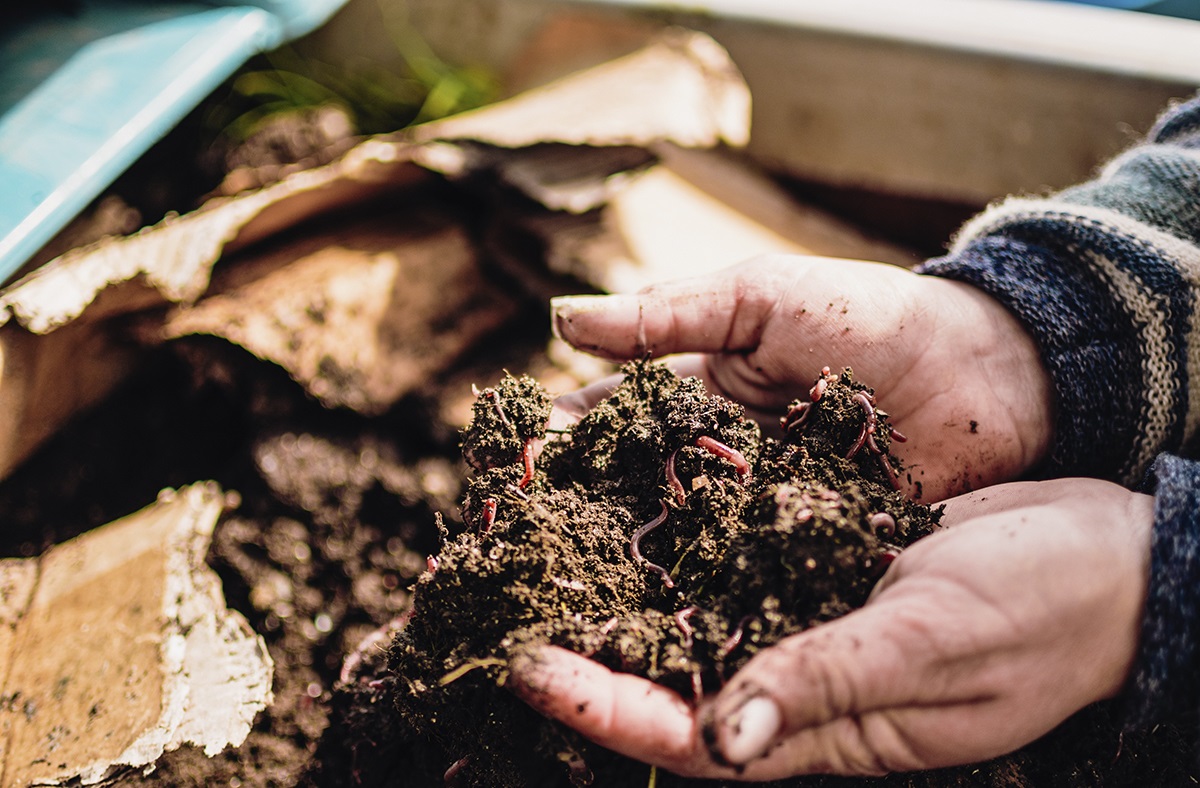
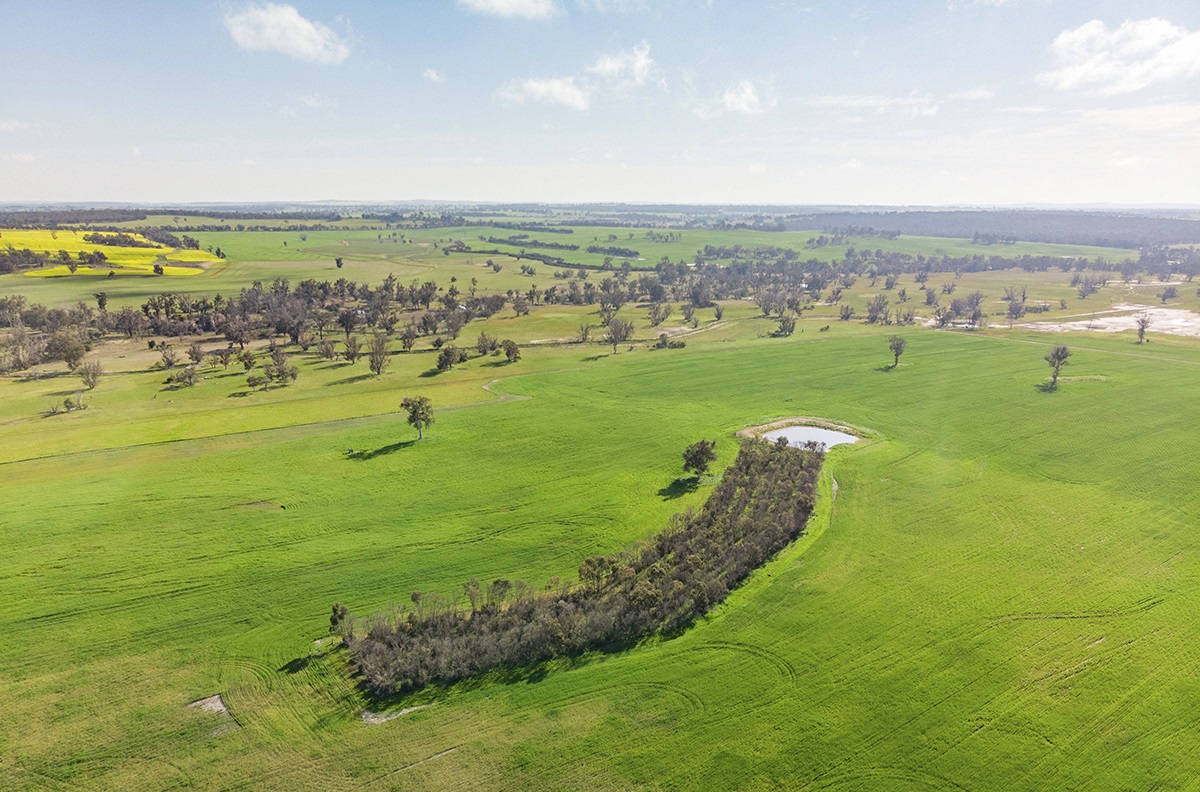
Deforestation in Western Australia
‘It’s a vast area that has been totally depleted by more than a century of clear cutting supported by government policy from 1890s up to the 1960s. When Anthony emailed me about his plan to bring 4 Returns to Australia, I was immediately on board.’ But where and with whom to start, in an area twice the size of the Netherlands?’
Back in Australia, Cole hand picked some family farms that were already working much more in harmony with nature than most farmers. ‘Some were advanced in their thinking and approach than we were, only they hadn’t put a label on it yet. For those farmers, it was self-evident to work with nature, rather than against it. Why would they cut down even more trees, for example, if those trees ensure the vitality of their land?’
Connecting farmers with consumers
Cole and Maslin managed to convince more farms to support their initiative. ‘What helps enormously is that we communicate the environmentally friendly and innovative way farmers work to the public through our brands. Until they started working with us, the farmers who already worked with the greatest care for nature had to rely on wholesale, including the lower margins that come with it. We are now telling their stories and connecting them with conscious consumers who are looking for responsible products and want to know more about where they come from. We see it as a closed cycle: the closer you bring consumers and regenerative farmers together, the more they will understand each other’s challenges and expectations.’ To convey the story behind regenerative farming, Cole and Maslin set up the Dirty Clean Foods brand. This new sales channel with higher margins was a welcome change for the farmers. At the same time, supermarkets welcomed the newcomer who managed to get regenerative products on the shelves.
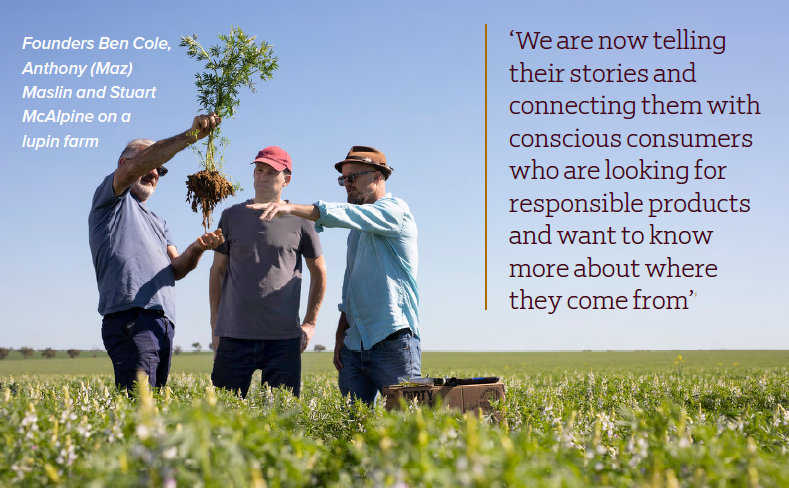
Listed company with enormous potential
Wide Open Agriculture, established through an investment from Commonland, is listed on the Australian ASX stock exchange since 2018. This makes WOA the first publicly traded company worldwide that works according to the 4 Returns Framework. And while Wide Open Agriculture is growing fast, it hasn’t grown into a huge business yet. As with many other start-ups, what make it so attractive to investors is its huge potential. And the biggest potential appears to lie in oats and lupine, the vegetable proteins WOA has been working hard on since the outbreak of the Covid pandemic.
OatUp becomes a strong brand
Working with oat milk was actually quite obvious, Cole says. ‘Our region is not called the wheatbelt without reason: oats are the ultimate agricultural product. We started looking at how we could add more value to that. In the Netherlands we came across oat milk, which Australian consumers have discovered only recently. That is of course a great way to use oats for human consumption. It is full of nutrients, but back then it was mainly used as animal feed.’
This led to the start of OatUp. The CO2-neutral oat milk is now well on its way to becoming a strong brand through supermarkets and the catering industry. Since March 2022, it has been sold throughout Australia by Woolworth’s supermarkets. The first steps towards international expansion have already been taken in Singapore, Hong Kong and Macau. Wide Open Agriculture is currently investing in its own factory that can produce 20 million litres of OatUp milk annually in a climate-neutral way.
In addition to OatUp and other plant-based regenerative products, Dirty Clean Foods also sells meat. ‘We are convinced that the interaction between animals and vegetation in Western Australia is important. Of course we should eat less meat, but the grazers have a function as a whole, also as four-legged suppliers of natural manure.’
Signing up to regenerative farming
‘Farmers have to officially declare: I work regeneratively. That is quite significant, because it means saying that they see the world differently than their colleagues’
A representative from Wide Open Agriculture guides the farmers in implementing the principles and working method that belong to the 4 Returns Framework. The company also helps farmers with the paperwork required for subsidised forest planting.
Bird sounds and satellite images
But, admits Cole, quantifying the contribution to wildlife restoration achieved on the 20,000 hectares of farmland regenerated to date in Australia is still a challenge. ‘You cannot ask farmers to keep biodiversity accounts: they have their hands full with their business. We have two indicators so far. One is analysing bird sounds during the dry and wet seasons. In addition, we measure the amount of carbon on the surface via satellites to determine how much of it is stored by the vegetation.’ The aim is to be able to provide all farmers with the data necessary to draw up a balance sheet of natural capital, in addition to a financial balance sheet. ‘In the meantime, we are having a positive impact on every hectare of land that our farmers manage. We want to grow to 100,000 hectares and more as soon as possible.’
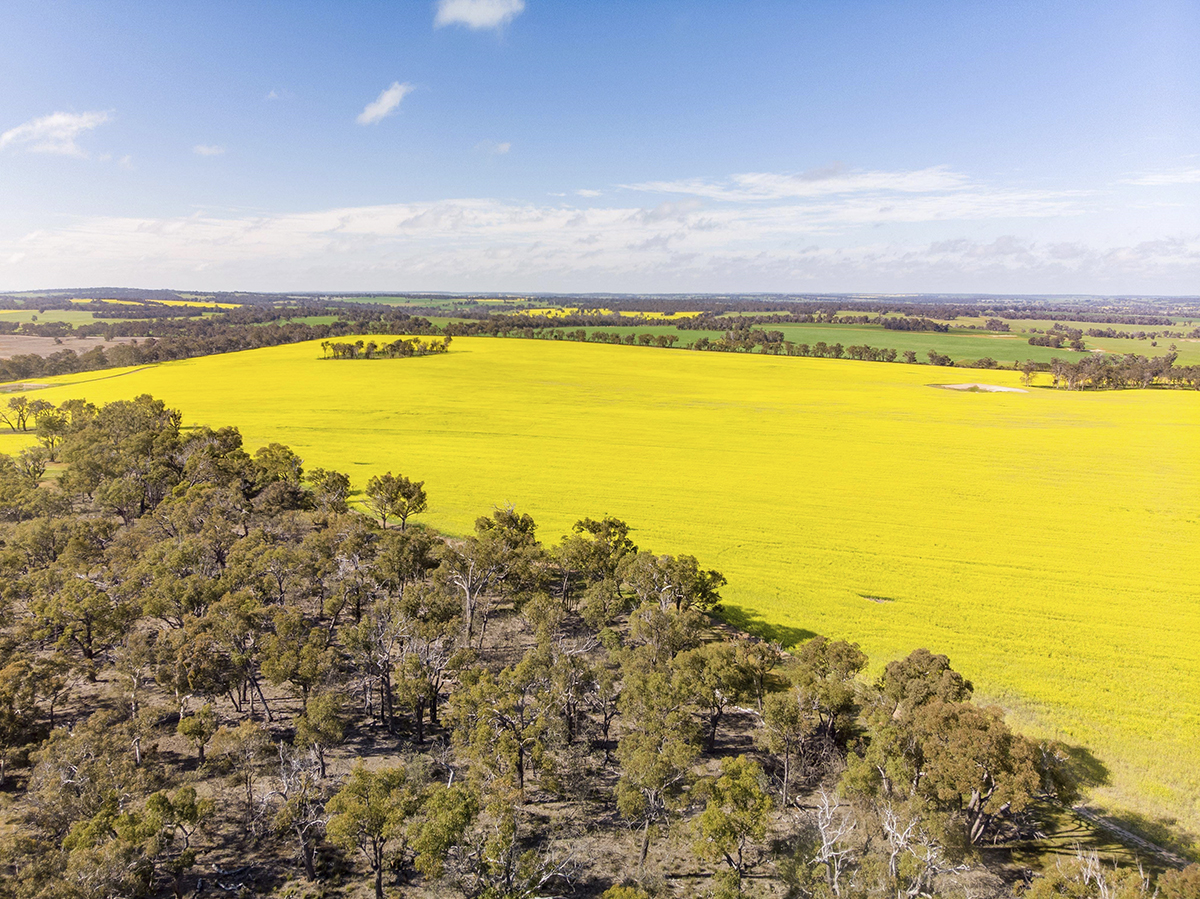
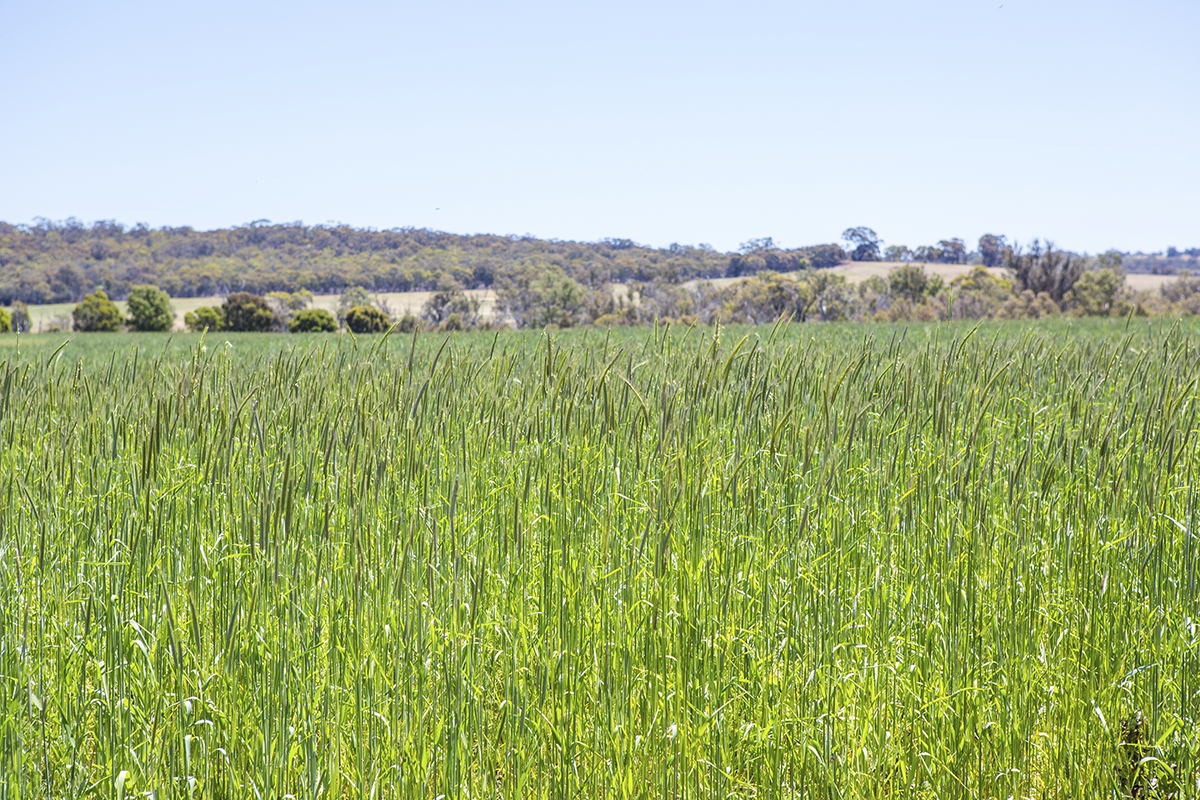
The ties with the Dutch Commonland organisation and Willem Ferwerda remain close. Cole: ‘We are in regular contact. Recently the Australian coordinator of the programme came to visit here, who was impressed after a tour of our farms. It’s great to be part of such a global community in which you share information and best practices.’
ASN Biodiversity Fund steps in
Wide Open Agriculture fits in perfectly with the objectives of the ASN Biodiversity Fund, through which ASN Impact Investors invests in companies and projects that protect and/or restore biodiversity. It proves that natural capital can be used to generate good financial returns. When Cole’s start-up issued new shares for 20 million Australian dollars at the end of last year, ASN Impact Investors, along with other institutional investors, stepped in. It was a special first for the ASN Biodiversity Fund: it invested in the first listed company with a net positive impact on biodiversity.
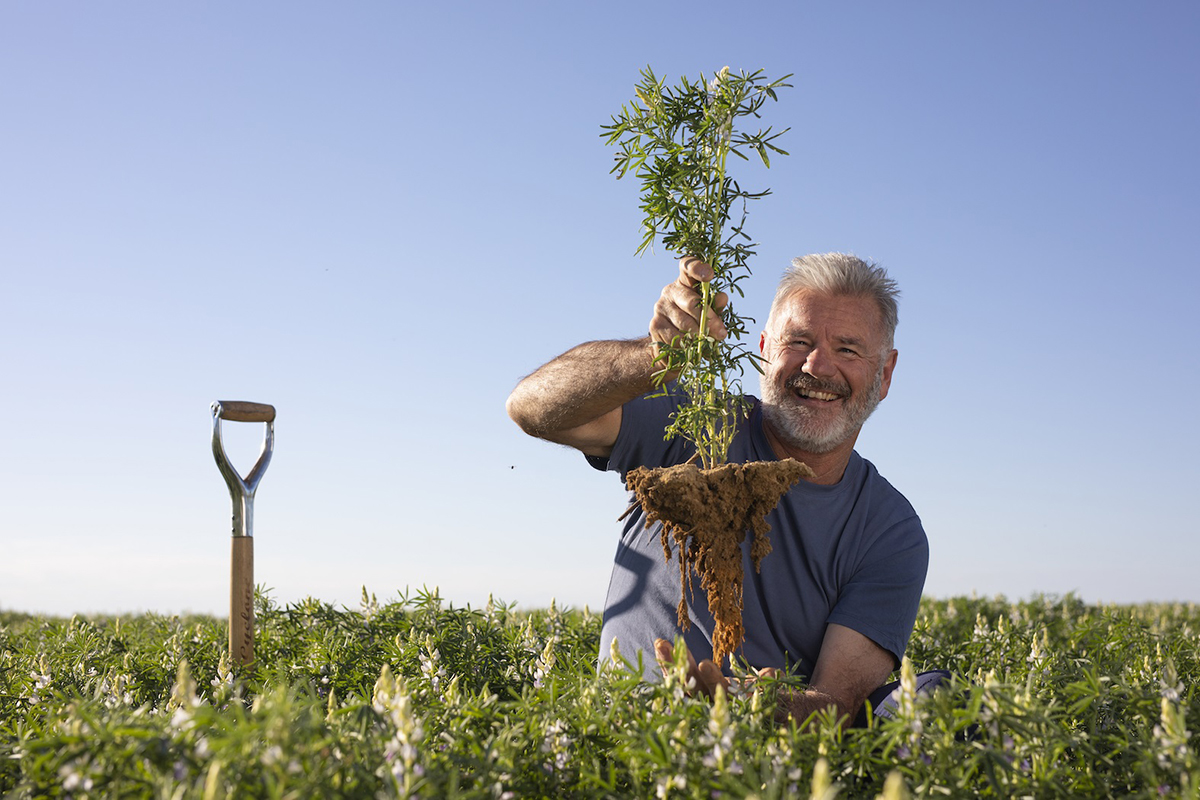

Cole: ‘We greatly appreciate that investors such as ASN Impact Investors make their money available and thus show confidence in the 4 Returns Framework. I’ve been a little discouraged lately by investors who suddenly invest in coal due to the energy crisis. To me that is old fashioned approach to investing for short-term return. We are always seeking investors that understand our long-term strategy to make a profitable business that has a positive impact on climate change and biodiversity. It’s nice to experience that there are parties like ASN on the other side of the world who look at the world from the same perspective as we do.’
‘Investments allow us to move closer to our goals, and investors can in turn benefit from the growth we are experiencing. In any case, the aim of our IPO is to make consumers part of our story and mission. We still have a long way to go but this presents a huge opportunity. You have to realise that 40% of the earth’s surface is farmland. If you farm this land in a more environmentally friendly way, this will also be a great boost for biodiversity.’
Download this article in PDF-format
Only 0,01% listed companies don't harm biodiversity?
Wide Open Agriculture is one of the apparently very few listed companies worldwide that don't harm biodiversity.
Can you help us find more?
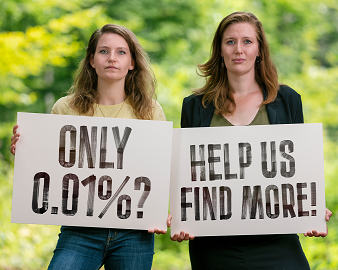
Regenerative agriculture according to Commonland
Strengthening natural resources instead of depleting them: that’s the goal of regenerative agriculture. The innovative agricultural method focuses mainly on improving the soil quality. Farmers try to achieve by cultivating areas lightly or not at all, changing crops more often, using grazers and planting extra forest. Regenerative farmers also pay extra attention to balanced water management. When done properly, regenerative farming also leads to more carbon storage in the soil. In this way it makes an important contribution to combating climate change.
Commonland, founded in 2013 by Dutchman Willem Ferwerda, has been giving regenerative agriculture a special twist with its 4 Returns Framework. The four returns include not only financial returns (return on investment), but also natural and social returns, and the return of ‘inspiration’. For investors, the 4 Returns Framework provides profit, but also the restoration of biodiversity and new employment in rural areas. Ferwerda himself defines inspiration as the belief that things can be done differently, creating hope and a sense of purpose.
Commonland has tackled areas in southern Spain, South Africa and Western Australia in recent years. In Australia, Wide Open Agriculture was the ultimate test case: can you attract outside investors with the 4 Returns model? With the IPO of WOA, and the investments by ASN Impact Investors and others, this test has been passed.